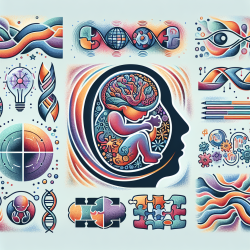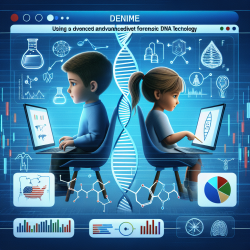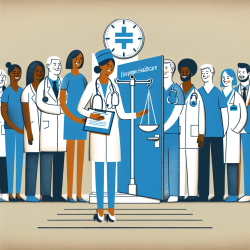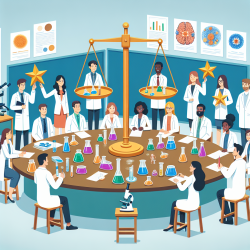Introduction
As a Special Education Director, staying abreast of the latest research is crucial for enhancing your practice and ensuring the best outcomes for students. One area of burgeoning interest is the application of epigenetics in various fields, including military, defense, and security. The research article titled "Defusing the legal and ethical minefield of epigenetic applications in the military, defense, and security context" offers insights that can be leveraged to improve online therapy practices, particularly in addressing legal and ethical concerns.
Understanding Epigenetics in Therapy
Epigenetics, the study of biochemical states that alter gene activity without changing the DNA sequence, has significant implications for therapy. It provides insights into how environmental and social factors influence genome regulation, impacting health and disease. For practitioners, understanding these mechanisms can enhance the development of personalized therapy plans.
Legal and Ethical Considerations
The research highlights the importance of establishing robust governance frameworks to manage the ethical and legal implications of epigenetic applications. This is particularly relevant for online therapy services, where data privacy and consent are paramount. Ensuring compliance with legal standards protects both the practitioner and the client, fostering a trust-based therapeutic relationship.
Addressing Genetic Discrimination
One of the significant concerns in the application of epigenetics is the potential for genetic discrimination. This is particularly relevant in military contexts, where epigenetic data could be misused. For online therapy practitioners, being aware of these issues is crucial in advocating for clients' rights and ensuring that therapy practices do not inadvertently contribute to discrimination.
Enhancing Therapy Through Epigenetic Insights
By integrating epigenetic insights, therapists can tailor interventions to better meet the needs of clients. For instance, understanding how trauma can leave epigenetic marks can inform therapy strategies for individuals with PTSD. This personalized approach not only improves therapy outcomes but also aligns with ethical practices by respecting individual differences.
Encouraging Further Research
While the current research provides a foundation, there is a need for ongoing exploration into the practical applications of epigenetics in therapy. Practitioners are encouraged to engage with interdisciplinary research, attend conferences, and participate in webinars to stay informed and contribute to the evolving field of epigenetics in therapy.
Conclusion
Epigenetics offers a promising avenue for enhancing online therapy practices. By understanding and implementing the outcomes of current research, practitioners can improve their skills and provide more effective, ethical, and legally compliant services. To read the original research paper, please follow this link: Defusing the legal and ethical minefield of epigenetic applications in the military, defense, and security context.










